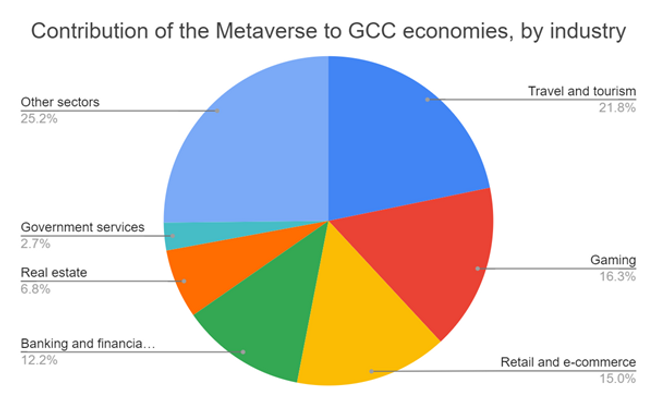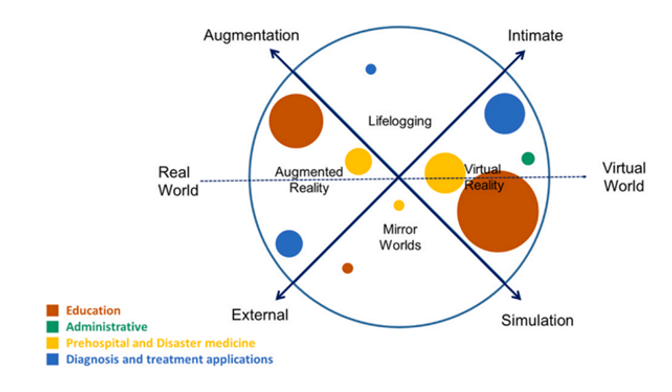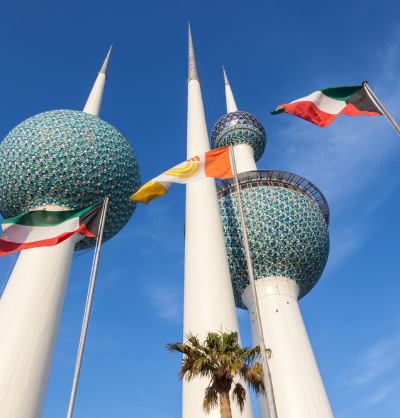What is the metaverse?
The metaverse is a new gateway to the digital space that embraces both the physical and digital worlds which further challenges more traditional territorial approaches of geopolitics. This technology creates new space — traditionally used in gaming — for diverse use in several industries. Often used interchangeably with Web 3, which is only one dimension of it, the metaverse fosters interaction primarily through digital avatars, enhancing user engagement further in the experience by adding a sense of immersion and real-time interactivity to the executed tasks in the virtual space, all valuable assets for military and civil training, education and shopping, among other use cases. Like the internet, the metaverse is enabled by several providers such as Decentraland, Sandbox, Fortnite, and Minecraft.
As the metaverse continues to gain traction, states will have to defend their sovereignty, competitiveness and survival. Web 3.0, with its potential for driving economic growth, assumes the role of soft power, intensifying competition among states and non-state actors. Furthermore, the nature of the technology, and its applications, challenge core geopolitical concepts.
The Economic Potential of the metaverse in the GCC:
Mckinsey’s bottom-up estimation approach predicts the metaverse to have a $5 trillion (USD) economic impact by 2030, illustrating a considerable opportunity for existing enterprises and new businesses to explore. This potential varies across industries, with the most significant centres on promise e-commerce with an estimated $2 trillion (USD) impact, followed by academic virtual learning, advertising, and gaming markets.[1] In GCC economies, the metaverse would inject some $15 billion (USD) by 2023; as represented in the chart below that illustrates the potential of this technology by industry.[2]

Travel and tourism, gaming, retail, and e-commerce have the highest potential to profit from metaverse applications in the region. Consider, for instance, that Saudi Arabia is supporting the metaverse as part of its strategy to reinforce tourism, notably within the development of NEOM city. Likewise, Oman is investing in the same scope working on simulating natural landmarks and cultural events as part of the Omanverse project.[3] Additionally, the UAE invests in the industry, building a metaverse incubator to promote Web3 applications, with Dubai and Abu Dhabi positioned as pioneering global cities in the virtual world.[4] Dubai established a metaverse strategy in 2022 to lead the industry and profit from its economic potential.[5] Diverse institutions in GCC countries are embracing the metaverse trend across several sectors. For example, the Bank of Bahrain and Kuwait has unveiled BBK Virtual, an immersive three-dimensional banking experience accessible through the metaverse.[6] Qatar Airways introduced the Qverse platform for virtual travel experiences, while Virgin Mobile Kuwait secured its position in the Sandbox virtual gaming environment. Furthermore, the UAE’s Thumbay Group is pioneering virtual healthcare solutions, the Ministry of Health and Prevention established a customer happiness centre and the Ministry of Economy opened its third office in the metaverse, offering various services.
The metaverse and its Geopolitical Challenges:
There are different typologies to categorise metaverse applications, with some emphasising more technical aspects of the technology, while others underline differences based on use cases. This space can be understood as comprising Virtual Reality (VR), Augmented Reality (AR), Lifelogging, and Mirror world. For a comprehensive overview, the illustration below showcases the four dimensions that the metaverse enables in the real and virtual worlds.[7]

The metaverse creates a new space with a multidimensional set of challenges for developers, policy-makers, users, and experts. The first challenge is the novelty of the space itself, which combines the physical and digital spaces. States would have to maintain their ‘territorial’ sovereignty to avoid its usurpation by private actors already entrenched in the industry, owning data necessary for algorithmic training which builds the metaverse, and gathering expertise in the technology.
Governments, non-profit organisations, experts, and industry players must collaborate to learn from previous and current new tech risks, such as algorithmic bias, and strategise a plan to either avoid them or, at least, minimise their impact. The ultimate solution would be to apply new technologies to a small size of population and develop them in clusters to study their implications closely. However, market dynamics, characterised by profit imperatives and global competitiveness, often run counter to such patient deliberations, rushing the pursuit of the ‘next big thing.’
The other geopolitical dimension of the metaverse is related to the concept of war. This technology introduced a new domain where other forms of war could occur between state and non-state actors, making disruptive technologies more accessible and the safety of fragile infrastructure more vulnerable. It is crucial to underline that this will not cancel traditional wars, as the current context illustrates and reinforces. However, a parallel war may occur in the metaverse in the form of cyber attacks on strategic infrastructures, hence the necessity for defense and military entities to strengthen their expertise in manoeuvering the metaverse and develop a robust set of tools to encounter any type of public damage.
Conclusion:
The metaverse is still being defined as a space in the trial phase. Despite it, this technology shows potential in shifting customer experiences, product innovation, employment engagement, and community-building. There are two current perceptions of the metaverse regarding its economic potential; on the one hand, some still perceive the technology as an enforced stretch of a gaming platform. On the other hand, others defend the merits of the metaverse in iterating the internet. In those two perceptions, the facts stand: in 2022, this industry’s global market was estimated at $65.5 billion (USD) and $83.9 billion (USD) in 2023.[8]
In GCC countries, customers’ awareness and willingness to interact in such a space is rising.[9] However, there is little discussion on how, and if, this technology could impact the sovereignty of states in the region. At this early stage, only predictive measures can be adopted to govern this technology before monopolies are formed and risks explode. As no concrete impact was observed so far on states’ sovereignty, GCC countries could adopt preventive steps, balancing between regulating the technology, using it, and supporting its development.
Resources
- Elmasry, Tarek, Hamza Khan, and Lareina Yee, et al. 2022. Review of Value Creation in the metaverse. McKinsey & Company. https://www.mckinsey.com/~/media/mckinsey/business%20functions/marketing%20and%20sales/our%20insights/value%20creation%20in%20the%20metaverse/Value-creation-in-the-metaverse.pdf.
- Karam, Tony G., Dany Karam, and Jad N. Baroudi. 2022. Review of A Middle East Perspective on the metaverse. PwC – Strategy&. https://www.strategyand.pwc.com/m1/en/strategic-foresight/functional-expertise/digital/metaverse/middle-east-perspective-on-the-metaverse.pdf.
- Alwahaibi, Bayan. “The Omanverse Project for the Development of Tourism Using metaverse.” Madarek, March 25, 2023. https://madarek.om/idea-details/2501.
- Rizwan Choudhury, “Middle East’s First metaverse Incubator Opens in Dubai World Trade Centre,” Mashable Middle East, April 12, 2022 https://me.mashable.com/tech/16584/middle-easts-first-metaverse-incubator-opens-in-dubaiworld-trade-centre
- Singh, Arushi. “Gulf States Pioneer the Implementation of metaverse Technology.” Fair Observer. July 22, 2023. https://www.fairobserver.com/world-news/gulf-states-pioneer-the-implementation-of-metaverse-technology/.
- BBK Enters the metaverse and Launches “BBK Virtual.” 2023. BBK. January 11, 2023. https://www.bbkonline.com/bbk-enters-the-metaverse-and-launches-bbk-virtual/.
- Wu, Tzu-Chi, and Chien-Ta Bruce Ho. 2022. “A Scoping Review of metaverse in Emergency Medicine.” Australasian Emergency Care 26 (1). https://doi.org/10.1016/j.auec.2022.08.002.
- Alsop, Thomas . 2023. “metaverse Market Size 2021-2030.” Statista. April 12, 2023. https://www.statista.com/statistics/1295784/metaverse-market-size/.
- Geronimo, Adelle. 2022. Review of metaverse Awareness in GCC Spells Huge Opportunities for Retail Sector: Report. Edge. September 8, 2022. https://www.edgemiddleeast.com/emergent-tech/high-metaverse-awareness-in-the-gcc-presents-huge-opportunities-for-retail-sector-report.








